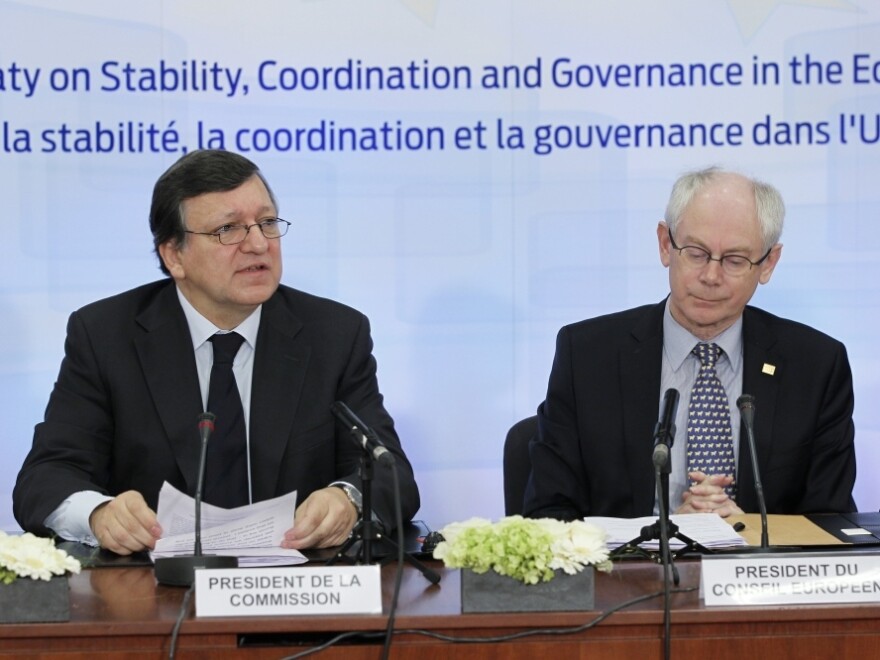European Union heads of state met again in Brussels at the end of this week. It was the 18th summit since the debt crisis began some two years ago, but for the first time, observers say there was no air of crisis surrounding the gathering. French President Nicolas Sarkozy even declared that Europe was turning the page on the financial crisis.
European Union head Herman Van Rompuy introduced the EU's new baby — what he said is its best hope for the future.
"So let us bring the child to life, and its full name: The Treaty on Stability, Coordination and Governance in the Economic and Monetary Union," he said.
The treaty will ensure fiscal discipline among member states and act as a barrier to future, Greek-style meltdowns. It mandates that members keep their deficits under 3 percent of GDP and balance national budgets. European Commission head Jose Manuel Barroso hailed a new era.
"I think it's a real signal that we will not return to the bad old days of fiscal irresponsibility. It's also a very important political statement on the irreversibility of the euro," he said. "The euro is not just the currency of 'some countries'; the euro is the currency of the European Union."
By restoring confidence in the euro zone, both within and without, leaders said the treaty will help foster growth and job creation, which seems to have become the bloc's new mantra after years of budget-slashing.
But with unemployment in Europe at a 10-year high and austerity measures intensifying the economic slowdown, leaders aren't quite sure how to reconcile the need to stimulate growth with the discipline required to fulfill the new fiscal pact.
In a recent interview with NPR, International Monetary Fund head Christine Lagarde said there is no consensus when it comes down to how to grow an economy.
"How do you fuel that growth? Do you fuel it by massive public spending? Stimulus packages? Or do you fuel it by intelligent, pointed structural reforms that will really unleash growth by market players?" she said.
German Chancellor Angela Merkel, whose country powers the euro zone, said the signing of the fiscal compact had opened a new chapter in overcoming the crisis. She also attributed the recent calm to a $1.3-trillion infusion of capital into euro zone banks by the European Central Bank.
Despite the clear skies over Brussels this week, analysts say there are clouds on the horizon. Germany opposes building a bigger firewall against Europe's debt contagion, so the issue of beefing up the European Stability Mechanism — a permanent rescue fund — was put off until mid-March. European leaders have also delayed approval of more than half of Greece's $170-billion bailout until private bondholders agree to take losses of more than 70 percent in a debt swap.
Copyright 2021 NPR. To see more, visit https://www.npr.org.




